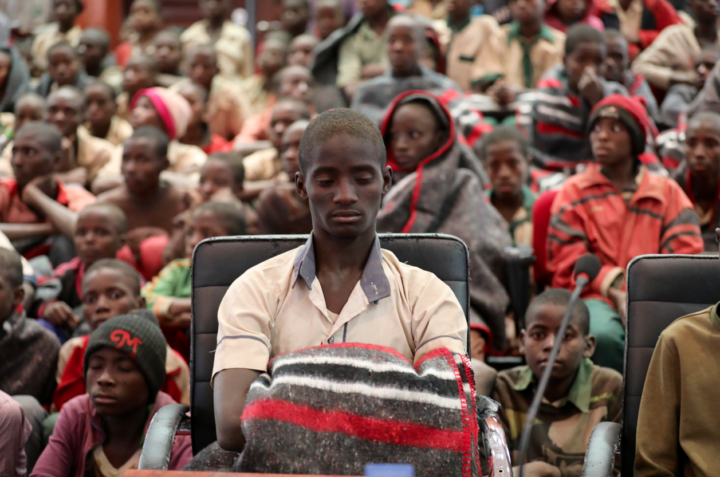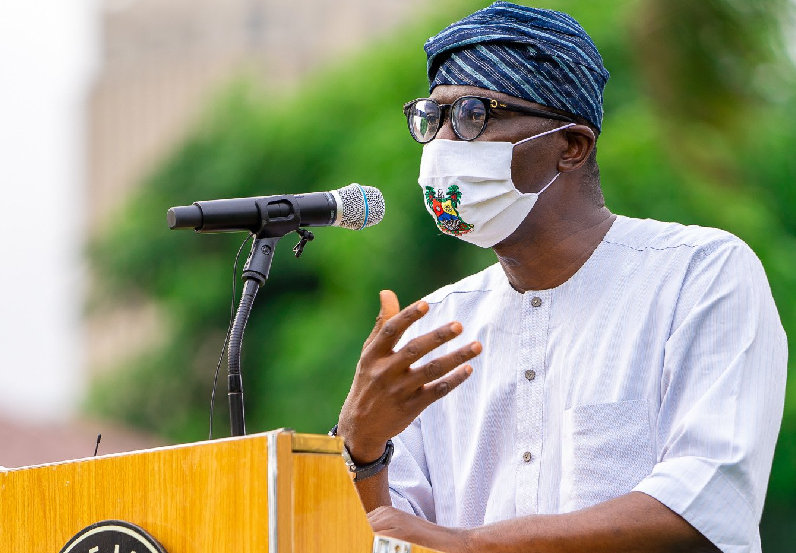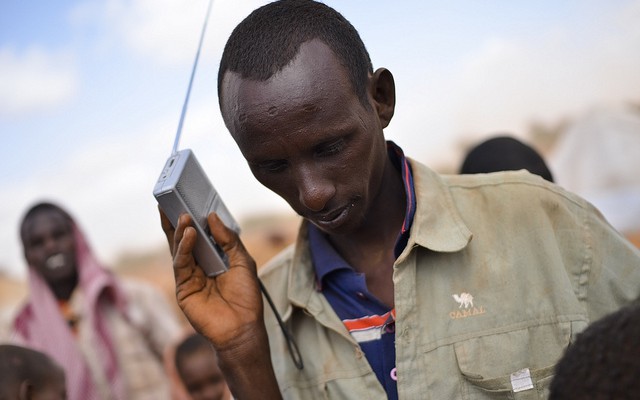BY OLUSOLA OWONIKOKO
In Nigeria, students have been risking their lives for an education. Like in most parts of the world, schooling comes with its fair share of challenges but when students risk losing their freedom or lives at school, our tomorrow is under attack. Where going to school is tantamount to charging into battle amid a swarm of bullets, what chances do the average Nigerian child have for a better education?
According to reports, about 800 secondary school and university students have been kidnapped in coordinated attacks by terrorists and bandits in the last six months alone.
Although these abductions did not begin recently, it has become frequent today than it was in 2014 when 276 girls were abducted from Government Girls’ Secondary school, Chibok, Borno State.
The abduction of the Chibok girls sparked global outrage and condemnation for the then Jonathan administration but outrage is not enough to solve a hydra-headed challenge such as kidnapping.
Advertisement
If anything, the frequency of these abductions now, in a way, normalises the nightmare. Once outraged, Nigerians are now in a state of acceptance. Acceptance that education in Nigeria will never be safe; that schooling is a risky venture that portends the loss of life and freedom; that it is normal to scurry around to raise millions in ransom for your child.
CHRONICLE OF SCHOOL ABDUCTIONS
The past six months have been quite a rough road for Nigerians. It began on December 11, 2020, when 344 male students were abducted from their hostels in Government Science Secondary School, Kankara, Katsina State. Barely two weeks later on December 20, 2020, 80 pupils of the Islamiyya School, Mahuta, Kaduna State were abducted. February 17, 2021, saw another outburst of rage when 27 students were abducted from GSS College, Kagara, Niger State.
In Zamfara State, 279 more girls of Government Secondary School Jangebe were abducted on February 26, 2021. The Federal College of Forestry Mechanisation, Afaka, Kaduna State also had its fair share of the insecurity, when 39 of its students were kidnapped on the midnight of March 11, 2021. Nine days later, another bandit attack led to the abduction of 23 students of Greenfield University, Kaduna State. Three more students were kidnapped on April 24, 2o21 from the Federal University of Agriculture, Makurdi, Benue State.
Advertisement
Though the 27 abducted students were recently released, it serves no succour to the four Greenfield students who, today, lie silently in their graves; Dorothy Yohanna, Precious Nwakacha, Sadiq Muazu and Benjamin Habilla. These young people would have grown up to become responsible Nigerians but the failed system, like a stray bullet, silenced them without warning.
The families who had their children back are left with mixed joy. On one hand, they have their loved ones back alive. On the other hand, they are swarming in debt they had incurred to raise millions of naira in ransom.
As of this writing, the surviving students of Greenfield University are still held captive while their families scurry around seeking ransom to pay bandits.
To think that these school abductions are a Northern phenomenon is grossly misleading. On February 29, 2016, Babington Macaulay Junior Seminary, Lagos was attacked by gunmen who abducted three schoolgirls in the dead of night. Eight months later, on October 6, 2016, armed men stormed Igbonla Model College in Epe, Lagos, kidnapping the school’s vice-principal, a teacher and four pupils. However, that’s not to deny that the North has been the worst-hit zone so far.
Advertisement
Amidst all these, there are only a handful of bandits being arrested and tried for their crimes despite reassuring press releases from the presidency. It appears that banditry, as it were, has become a lucrative industry in Nigeria. A platform that forces those in Government to listen to you and even grant you an audience. Such privilege!
TARGET FOR TERRORIST RECRUITMENT
Consequently, the risk of schooling in Nigeria today is death. Where going to school could be compared to charging into battle amid a swarm of bullets, what chances do the average Nigerian child have to a better education?
Responding to the unrest, several states are shutting down boarding schools in violence-prone areas. This will, no doubt, add to the over 13.5 million out-of-school children in Nigerian today. According to available data, 30% of pupils drop out of primary school and only 54% transit to junior secondary schools. While these figures are results of extreme poverty, child labour, early marriage in girls, insecurity currently takes the cake.
About 80% of out-of-school children today are in Northern Nigeria. With security systems destabilised, schools closed due to insecurity and poverty ravaging the core north, these former students are ready targets for terrorist recruitments. This is no prediction.
Advertisement
On the evening of Tuesday, April 27, 2021, Boko Haram shared N20,000 to over 50 households in Geidam, Yobe State. Days earlier, the terrorists invaded the local government area, burned down private and public properties, telecom facilities and police stations but did not harm Muslim civilians. More so, they hoisted their flag and circulated propaganda leaflets, inviting locals to join their holy cause.
The group are exploiting economic, security and education gaps in the Nigerian system to offer these locals a better option. They are simply saying, “this is what you stand to enjoy when you give us your territory and allegiance.”
Advertisement
For most households who live below $1 or N500 a day, a N20,000 cash gift makes Boko Haram God-sent. They will, as a matter of gratitude, join the cause.
In the past few weeks, state governments have been closing down schools. This may work temporarily but for how long can we sustain that? We must find long-term solutions to this menace.
Advertisement
Where do we start?
Like most societal issues, the visible part of the problem is hardly the real thing. When we focus on stopping kidnappers alone, we will continue to treat symptoms without success. In my opinion, we must begin with our laws, their enforcement mechanisms and strengthening our institutions to withstand external pressure.
Advertisement
Laws and Policies
In a bid to stop the spate of school abductions in Lagos, the State House of Assembly passed a bill that places the death penalty on kidnapping. This should be adopted in every state of the Federation.
When kidnappers and bandits know that they have no option of living or bail when caught in the act, their body language changes. While the death penalty is frowned upon in most climes, it remains, in my opinion, the only punishment befitting a kidnapper in Nigeria.
The privileges afforded to terrorists and kidnappers by the Buhari administration is one of the strongest motivators of the menace today. No matter how well-intentioned, these soft policies are prolonging the fight. The earlier the current administration understands this, the better for Nigerians.
Strengthen Institutions & Law Enforcement Agencies
Passing laws is one of many steps to societal change. For one, laws serve as a legal framework for charging offenders and administering justice. But laws cannot enforce themselves. There must be clear mechanisms that enable them to work with the least interference from both state and non-state actors. When institutions are strengthened and allowed to work with adequate autonomy, the rule of law will take its course.
Addressing Societal Issues
Enacting and enforcing the right laws is a step in the right direction but it is not enough. We must think and act more holistically by addressing the socio-economic factors that facilitate kidnapping.
From my experience as a social entrepreneur, most societal issues are not always what they seem. As disturbing as kidnapping is, it is only a visible tip of a complex underground maze. We must address causal factors such as poverty, injustice, nepotism, marginalization, corruption, amongst others if we must get to the root of the issue.
National Consciousness & Citizen Participation
Terrorism and kidnapping are intelligence-driven. If we must tackle them head-on, we must raise our national intelligence as Nigerians to fight this menace on an individual level.
In schools, we must teach students how to respond to security emergencies. They must be taught basic self-defence and evasive skills that makes it harder for kidnappers to simply whisk students off without a run for their money.
Schools must invest in their security infrastructure to make themselves less vulnerable to kidnappers. Round-the-clock surveillance systems and well-lit surrounding are a turn off for kidnappers.
Schools must also arrange with law enforcement agencies for periodic patrols and inspections within and outside the school fence to ensure there are no ongoing breaches.
Fighting kidnapping and kidnappers is a costly endeavour. But we rather spend that money, time and attention where it matters than hand it to unscrupulous elements of society.
Schooling in Nigeria does not have to be a suicide mission. With these four suggestions, I believe we can restore dignity to the Nigerian state and its people both now and in years to come.
Owonikoko is a serial entrepreneur and a trained international development expert, who has worked on projects by USAID, DfID, World Bank/IFC. He tweets @SolaOwonikoko.
Views expressed by contributors are strictly personal and not of TheCable.
Add a comment






